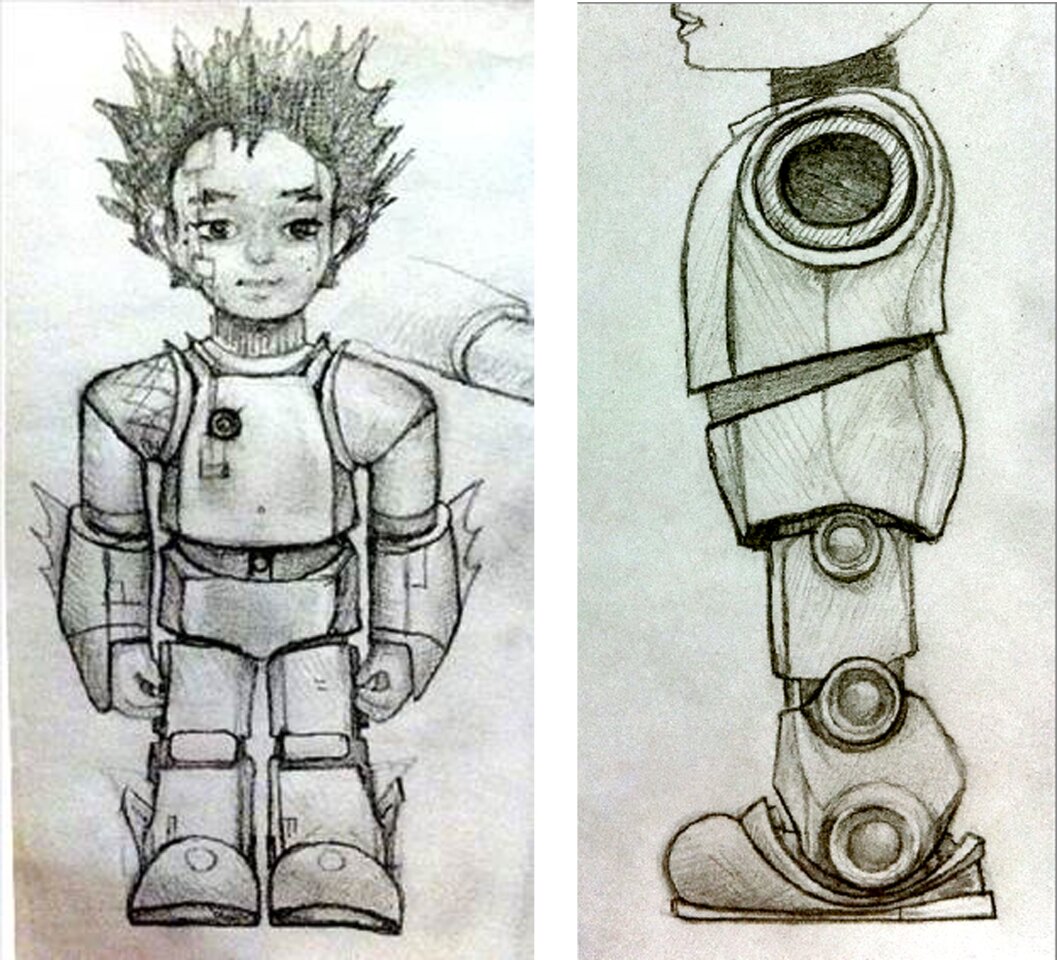More and more, robots are moving into our everyday lives, and if they’re not going to end up being incredibly annoying, they’re going to have to learn to recognize and cope with human emotions. RoboKind of Dallas, Texas has started a Kickstarter campaign to raise capital for the further development of its Zeno R25 interactive humanoid robot, which is designed to interact with humans in an intuitive way by detecting and mimicking emotions.
RoboKind, formerly Hanson Robotics, has been working on interactive humanoid robots for some years, including its early robot Einstein, robot baby Diego-san, and the earlier version of Zeno. The idea linking all of them is a desire to develop a robot with the capability of showing human emotions realistically and then combine this with a high-level artificial intelligence.
They've had a fair degree of success over the past decade, but the company still hasn't been able to come anywhere near to breaking into the consumer market because the price per robot remains high. Their previous model, the Zeno R50, sells for US$16,000, which pretty much puts it out of reach of anyone other than universities and similar institutions.

The Zeno R25 is designed as an inexpensive version of the Zeno R50 and RoboKind says that it will retail for US$2,700. However, the company points out that even though it’s made to be more affordable, it also enjoys some advances on the Zeno R50.
Though it looks a bit like a supersized toy, the Zeno R25 packs some fairly sophisticated technology in its humanoid form. Its brain is an OMAP 4460 dual core 1.5 GHz ARM Cortex A9 processor with 1 GB of RAM and 8 GB of memory that can be expanded via a MicroSD expansion slot. It runs mainly on open source software to allow for hobbyist work and user customization and the robot also has Wi-Fi and Bluetooth connectivity.
Since the robot is intended to be interactive, it’s equipped with a 5-megapixel autofocus camera in its right eye. Backing this up is a battery of visual algorithms for detecting colors, motion, faces, and QR codes. In addition, Robokind’s CompuCompassion system is designed to allow the Zeno R25 to identify and respond to emotions.

For audio, there’s an array of eight microphones capable of noise cancellation, audio localization, and enhancement. The Zeno R25 is also packed with infrared distance sensors, compass, gyro, and accelerometer, and the body has nine touch-sensitive areas. For control and output, there’s a 240 x 320 resistive touch screen on the chest, and a speaker to give the robot a voice.
When it comes to movement, the Zeno 25 packs 21 motors that provide it with 15 degrees of freedom and three degrees of freedom for walking forward, backwards, and turning. Even the face has six degrees of freedom to allow a wide range of emotional expressions as well as a degree of non-verbal communication.
RoboKind sees a number of advantages in a robot that can detect and show emotions. In terms of entertainment, the Zeno R25 reads books, tells interactive stories and jokes, can answer questions by searching online for answers, and, according to the company, the robot’s FunkTank software allows it to detect beats and dance along with music.

RoboKind also says that the Zeno R25 can conduct lessons for primary school students, teaching foreign languages, vocabulary drills, reading comprehension, history, science, geography and mathematics. It can also teach computer science to high school students and can be used as a teaching and research platform for university-level robotics courses.
One promising area for the Zeno R25 is in autism therapy. The paradox of humanoid robots is that the more lifelike they become, the less lifelike they seem. Unfortunately, the Zeno R25 has a slightly creepy air about it for many people, but in helping to treat autism, this is an advantage. Autistic children have trouble understanding human emotions and social cues, and the Zeno R25’s robotic expression is much easier to grasp.

The robot can not only talk to the child, but also display videos on its chest and record therapy sessions. RoboKind has also developed therapy modules to help autistic children recognize emotions and improve their social interaction.
Another interesting feature of the Zeno R25 is that RoboKind claims that it has its own personality, which it can alter to fit a particular mood.
A $2,699 pledge to the Kickstarter campaign running through November 23 is the minimum to reserve an Zeno R25 robot if the $50,000 goal is reached. If the campaign is successful, the first deliveries of the Zeno R25 are scheduled for March 2014.
The video below introduces the Zeno R25.
Source: Robokind




























